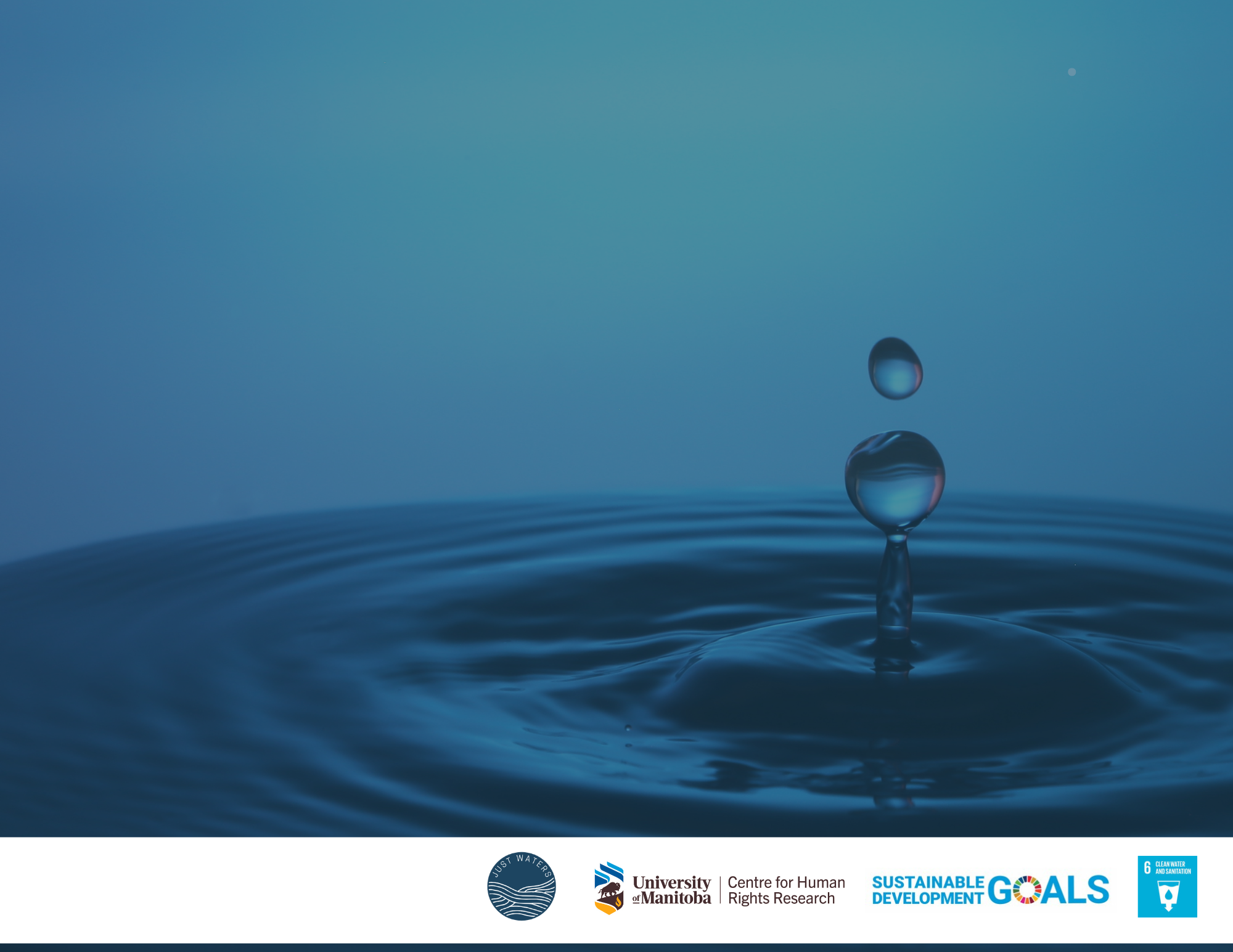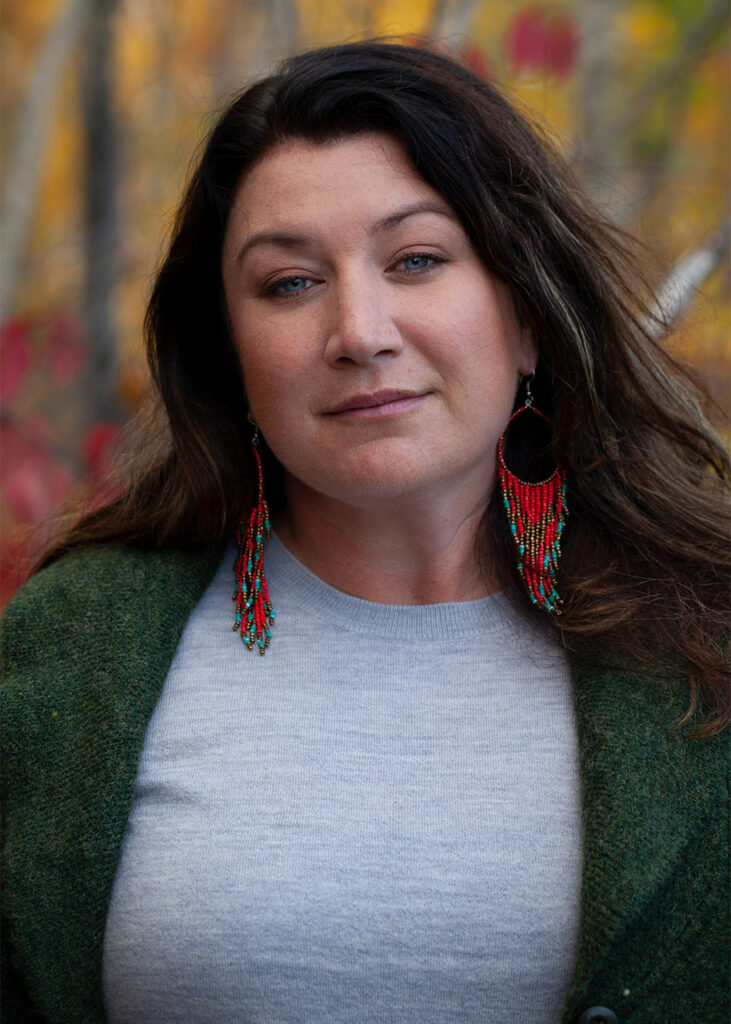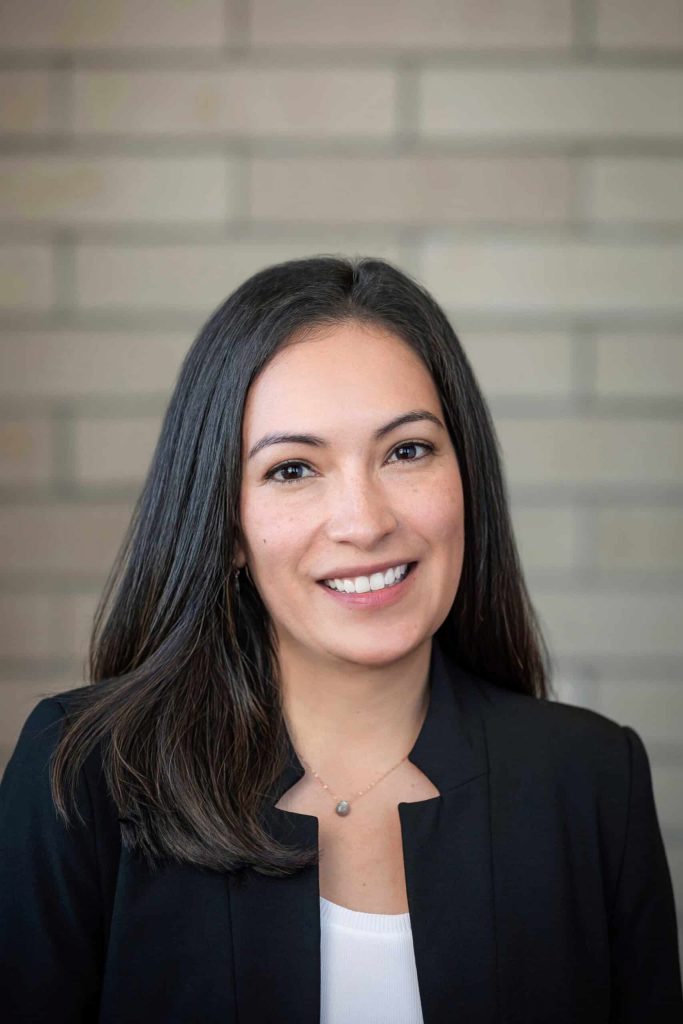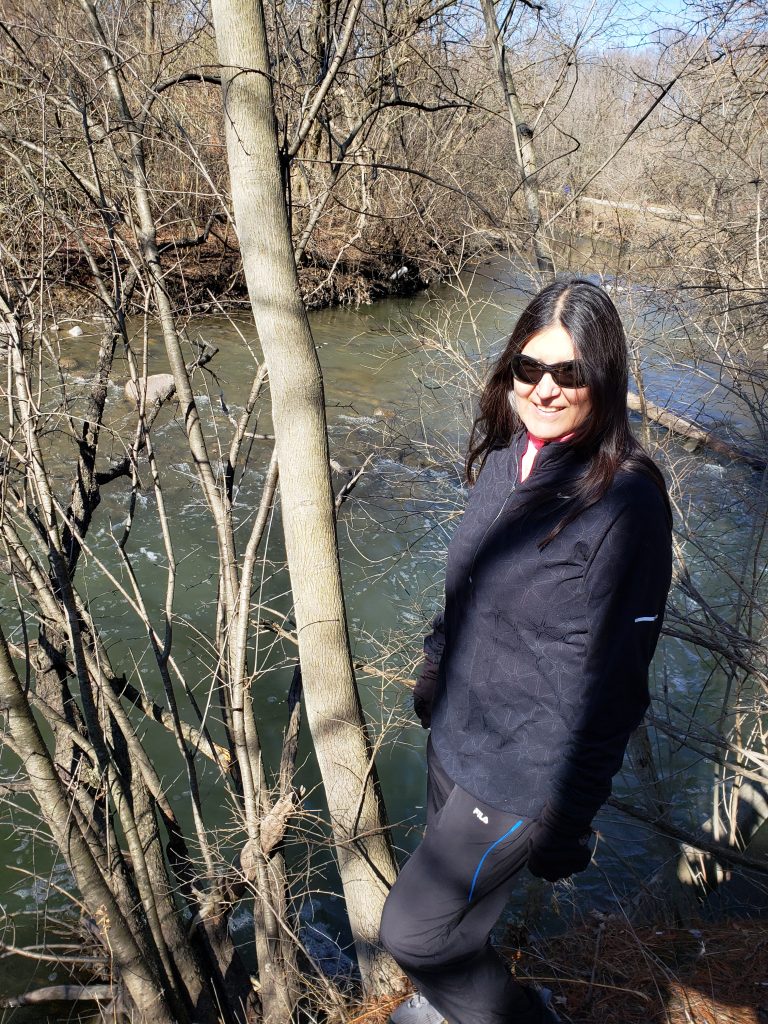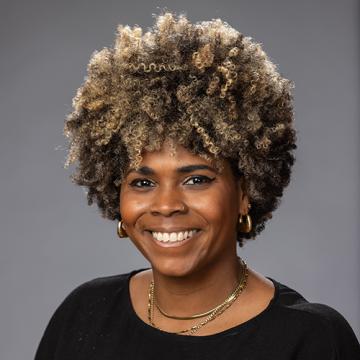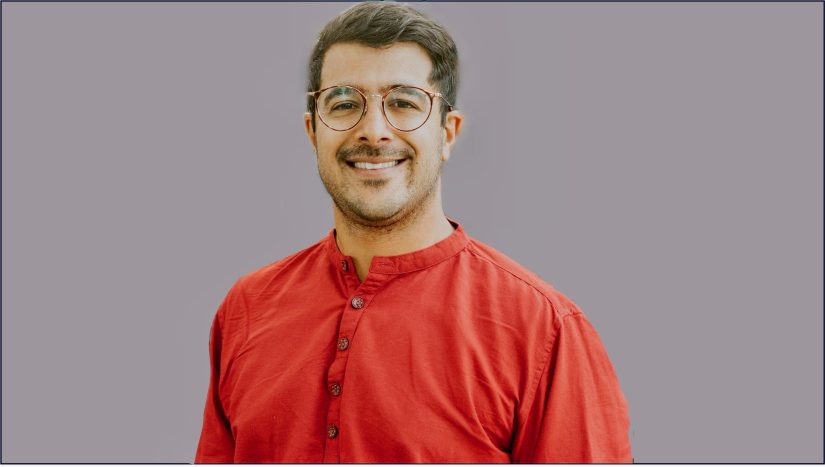Join us for the next webinar in The Last Drop Water Researchers Speaker Series with panelists Aimée Craft (University of Ottawa), Linda Mendez-Barrientos (University of Denver), Deborah McGregor (Anishinabe, Whitefish River First Nation, Professor, University of Calgary), Anaís Roque (Duke University), and Sameer H. Shah (University of Washington).
Water and climate change are inextricably linked — extreme weather events are making water more scarce, more unpredictable, and more polluted. These impacts throughout the water cycle threaten all aspects of human relationships with water. Work at the intersection of water and climate justice is needed to understand how socio-cultural, political, and economic relationships at different scales serve to co-create and maintain injustices in diverse hydrosocial systems (i.e., transition to low-carbon futures using large-scale hydroelectricity generation requires assessment of water justice impacts).
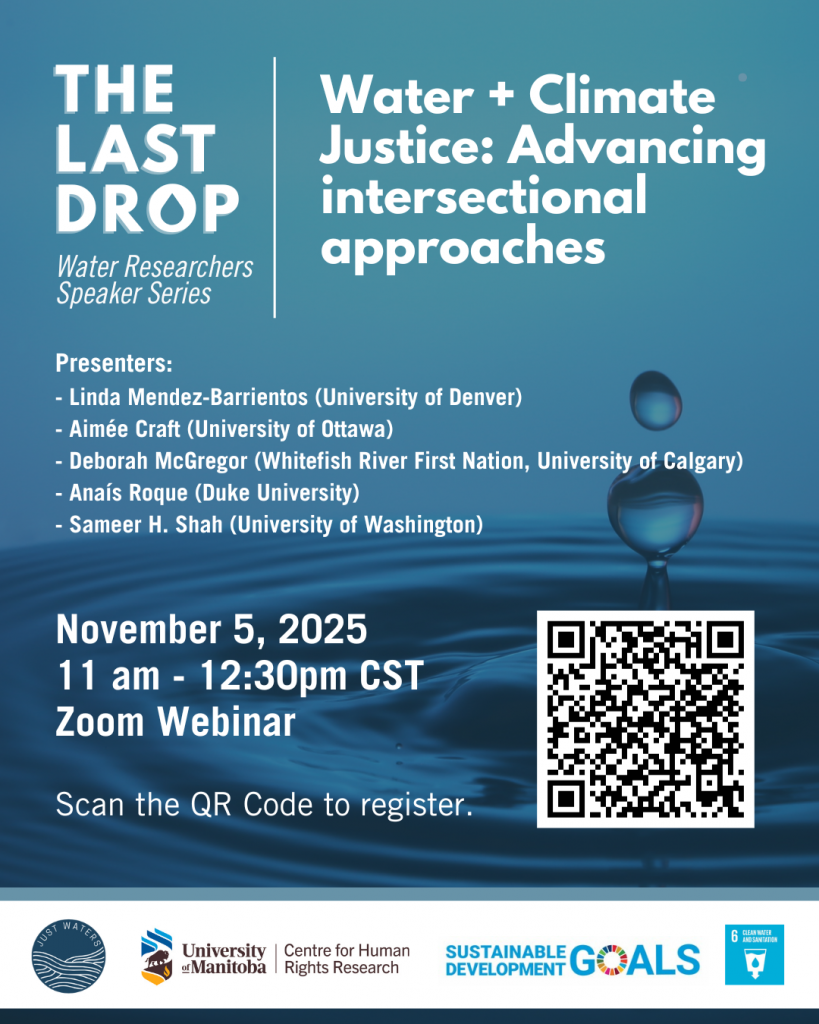
Furthermore, critical assessment of the human drivers of water and climate crises can advance understandings of the ways that water- related climate risks and impacts are not strictly natural phenomena, rather they are produced by the interaction between socio-economic and political marginalization as well as physical changes in water dynamics. Overall, a combined water and climate justice lens adds nuance to ongoing and emergent water and climate crises, as they prompt us to ask who benefits, who loses out, in what ways, where, and why? At the same time, more work is needed to understand the points of intersection and divergence between water and climate injustices. This session brings together diverse scholars whose work addresses water and climate justice to explore the intersections and divergences between water and climate justices, including how these overlap with other patterns and experiences of marginality and injustice.
Registration required. To register, visit: https://umanitoba.zoom.us/meeting/register/0rzhln4-SQWrazhJCNNtxg
About the Speakers
